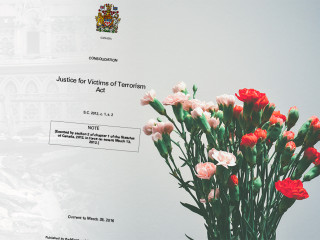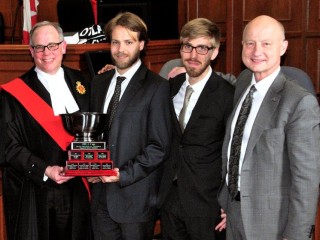
Counsel for the Applicant: Nicole Correiro
Counsel for the Respondent: Helen D.K. Friedman &
Ashleigh T. Leon
Heard by: Justice Katherine Swinton
This was an appeal of a decision by FSCO Director’s Delegate David Evans regarding the deductibility of post-collision income from the applicant’s income replacement benefits.
Prior to the subject collision, Mrs. Surani was a pharmacist who worked in a Scarborough pharmacy owned by her family. Mrs. Surani and her husband were involved in a motor vehicle collision in December of 2010 and were unable to return to their pre-collision employment. Though Mrs. Surani was no longer working at the pharmacy in her regular capacity, she continued to receive a business income.
After the collision, Mrs. Surani claimed Income Replacement Benefits from the respondent. A dispute then arose as to the deductibility of Mrs. Surani’s post-collision income from her IRBs. At the initial FSCO Arbitration, it was held that this income was not deductible. This decision was reversed by Director’s Delegate Evans. Mrs. Surani applied to the Divisional Court for judicial review.
The Honourable Justice Swinton, in reviewing the wording of s. 7(3) of the SABs, dismissed the application.
In her submissions, Ms. Surani argued that the use of the term “earned” in s. 7(3)(b) (which deals with income from self-employment) was an important distinction from the use of the term “received” in s. 7(3)(a) (which deals with income from regular employment). Ms. Surani had invited the Director’s Delegate to apply the plain-language meaning of the word “earned”, suggesting active engagement with the business as opposed to passive involvement. The Director’s Delegate rejected this argument.
Justice Swinton agreed with the Director’s Delegate’s decision, noting that s. 7(3) of the SABs should be interpreted in light of s. 4(3) and s. 4(4) of the SABs which set out that a self-employed person’s income and losses are to be interpreted in accordance with Part I of the Income Tax Act. Justice Swinton emphasized that Part I of the ITA held that “a taxpayer’s income for a taxation year from a business or property is the taxpayer’s profit from the business or property for the year”. Effectively, the income and/or loss of the self-employed person are those of the business. Justice Swinton went on to hold that no requirement for “active participation” is actually found in the words of s. 7(3)(b).
Justice Swinton ultimately held that Director’s Delegate Evans’ interpretation of SABs aligned with the overall intent of the legislation and the Supreme Court’s decision in Rizzo v. Rizzo [1998] 1 SCR 27 wherein the Court held that the words of an Act are to be read harmoniously with the scheme and object of the Act, along with the intention of Parliament. She noted that the purpose of the IRBs is to provide compensation for income loss, but that this compensation was subject to statutory limits. Justice Swinton saw no reason to set aside the decision of the Director’s Delegate.












